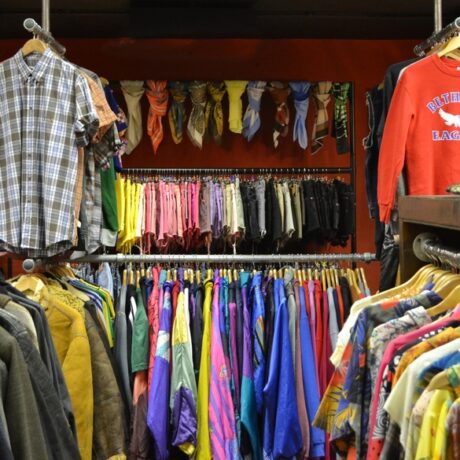Back To School: The Irony of Classroom Ethics
While rolling down the supermarket coffee aisle with my trolley back in March, my five year old son suddenly started jumping up and down very excitedly, pointing to a particular brand of instant coffee which had a logo he recognised on it. “Tradefair, mummy! Look – it’s Tradefair! You should buy that one!” he exclaimed, looking really very pleased with himself.
“How on earth do you know about Fairtrade?” I asked, pleased but puzzled.
“At school. The other day.”
I remembered it was Fairtrade Fortnight and a little piece of my heart jumped for joy to know that teachers are tutoring children as young as four and five about ethical production issues. But to be fair my son goes to a pretty forward-thinking Eco-School with three Green Flag awards, so I thought this type of learning was maybe an exception rather than the rule.
So I asked a friend of mine who is the Head of Life Skills at a local secondary school whether they taught students about issues surrounding sweat shops and child labour in developing countries as part of the curriculum. She said they do it as part of the ‘Fairtrade and the Global Community’ course topic. Pretty impressive.
And then the irony hit me.
All these children, in class upon class around the country, many from institutions classified as ‘Eco-Schools’, are sitting there learning about the ethics of clothing production whilst wearing ethically questionable £1.50 school uniform items purchased from supermarkets.
And they’re probably sitting there sweating too. Not because they’ve realised the hypocrisy of the situation. But because supermarket school uniform pinafores, skirts and trousers are typically made of polyester or polycotton; materials which are plastic/crude oil derivatives so don’t let the skin breathe, and are well-known to trigger rashes and aggravate skin conditions such as eczema.
The truth is, many of these cheap school uniforms are not good for our children.
The reality of the situation is that to make the laundry life of parents more convenient, they’re often coated in Teflon-like stain-resistant, fire retardant and wrinkle free chemicals. But what price are we as a society willing to pay for an easy ride at home?
A study by chemists Arlene Blum and Bruce Ames at the University of California, Berkeley, took morning urine samples from ten children who wore polyester pyjamas treated with a fire retardant chemical the night before, and the substance was found to be present in the urine of all ten children after being absorbed from the pyjamas via the skin. The more these sorts of clothes are worn and washed, the higher the chance of chemicals migrating from the fabric and becoming particles that can be inhaled by children or absorbed into the bloodstream via contact with the child’s skin. Pretty scary stuff.
The fact that the only information Aldi would share when asked the #WhoMadeMyClothes question on this blog earlier in the month was information about their ‘policy’ was hardly a surprise. It was a whole lot of fluffy words that didn’t really mean anything – just what you expect to come from the PR department of a large company; no ‘real’ information about their supply chain or production methods; no faces, no transparency. After Bangladesh’s Tazreen Fashion factory fire in 2012 and the 2013 Rana Plaza factory collapse, it’s getting more commonplace for clothes brands to keep their production ties a closely guarded secret.
It was a refreshing change to see Tesco coming clean about the same #WhoMadeMyClothes question, showing us some real factory worker faces, and the company does seem to be trying lots of ethical initiatives – which is definitely a great start. But the truth is that Tesco’s F&F school uniforms are still predominantly polyester or viscose, and their website couldn’t shout louder if it tried about their Teflon fabric protector coated, easy-iron, stain-resistant clothes. These chemicals are not things I want near the skin of my children, so I’m reserving my round of applause for them just yet.

The company who I will tip my hat off to is EcoOutfitters. Nobody needs to ask them the #WhoMadeMyClothes question, because the information is there on their website for all to see. Their natural 100% organic cotton eco-friendly school uniforms are chemical free, ethically and sustainably produced, and certified by GOTS (Global Organic Textile Standards), meaning all their goods are tested against a strict set of environmental and social criteria. No polyester. No viscose. No chemical coatings. Just breathable 100% organic cotton.
The perfect school uniform to wear for a well-informed debate on ethical clothing production in the classroom.






